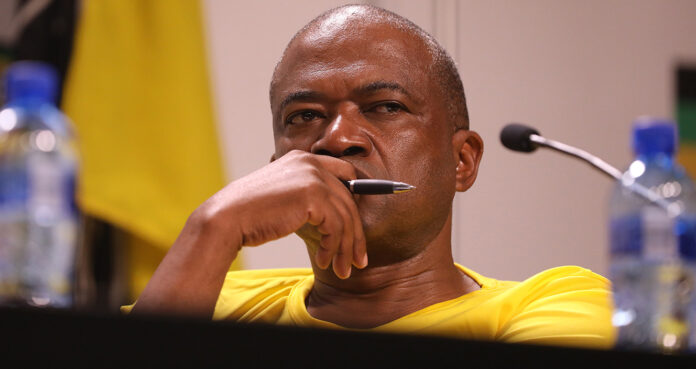ANC NEC communications subcommittee chairperson Nkenke Kekana says there must be a holistic change of the law if what was proposed by Minister of Communications and Digital Technologies Solly Malatsi over the directive on satellite communication services is to see the light of day.
This comes as parliament prepares to grill Malatsi on Tuesday over the directive on satellite communication services he gazetted this week.
The move by Malatsi has drawn the ire of various parties, who contend it’s a veiled effort to allow billionaire Elon Musk easy passage to operate his Starlink satellite which is owned by Space X, in the country by circumventing economic redress laws.
“As a solution to the licensing process for any potential telecoms provider, the Minister of Communications and Digital Technologies must consider opening a new licensing window by issuing a policy directive to the authority (Icasa), wherein the authority will be instructed to conduct an inquiry that is meant to determine the appetite for this opportunity.
“This on its own will assist the minster to assess the level of interest and the minister may be persuaded by the positive outcome of the inquiry, which could even further motivate him to further instruct the authority to issue an invitation to apply,” Kekana said.
“At this stage, given that the license window is still not opened, SpaceX can only provide satellite and related services in SA through any of a trusted and compliant individual-electronic communications network service and i-electronic communications service license holders.”
“Icasa is an independent regulator and whatever decision it takes, it must respect the rights of incumbent players and conduct a market study to understand the impact of satellite communication on the existing market,” said Kekana.
Malatsi has been summoned for a grilling before parliament’s portfolio committee on communications and digital technologies, which is chaired by the ANC NEC communications subcommittee member Khusela Sangoni-Diko, on Tuesday.
Starlink has been a political hot potato for months in South Africa following the owner’s publicly stated opposition to BBBEE laws.
The directive by Malatsi, which is open for public comments until late June, proposes that the equity equivalent option be considered in satellite communication services deals with multinationals.
The ANCYL also slammed Malatsi’s directive, calling it a move seeking to undermine efforts for economic transformation and an assault on the previously disadvantaged.
Malatsi told Sunday World that his proposal is not tailor-made for Starlink.
“BEE is not being replaced, equity equivalence is a provision made under the BBBEE. What the policy directive proposes is choice for companies. Those who will still prefer the 30% local ownership can do so, those who believe that the 30% local ownership represents some structural problems can pursue the equity equivalent programmes,” said Malatsi.
“We are saying that the regulator’s (Icasa) interpretation currently of its regulations are inconsistent with the ICT sector codes. We want a policy which aligns so that there is no uncertainty. Microsoft,
IBM and Amazon operate in SA through the equity equivalent programme, and they are in the ICT programme,” he said.
However, Presidency spokesperson Vincent Magwenya said the public outrage over the proposal and linking it to Starlink was far-fetched. “It is an invitation for public participation, there is nothing sinister about this. I think it is just the timing. There was no discussion about Starlink in the discussions we had during the working visit in the US,” said Magwenya.




